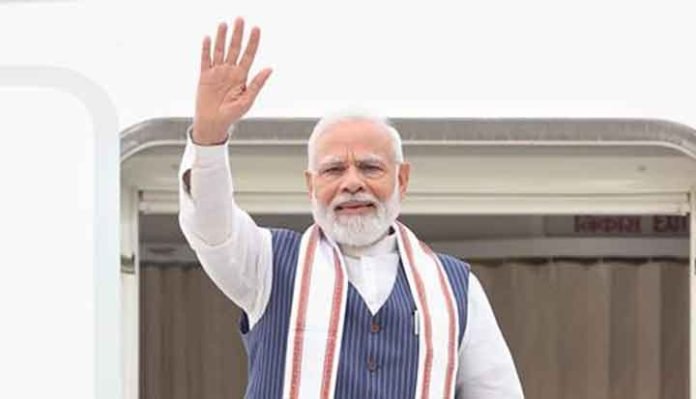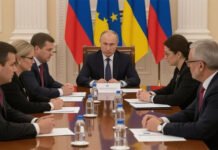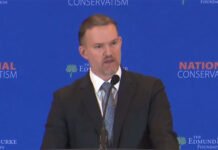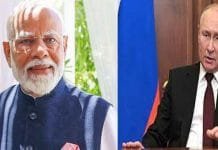INVC NEWS
New Delhi – Prime Minister Narendra Modi is set to attend the 16th BRICS Summit, hosted in Kazan, Russia, on October 22-23, 2024. This summit will see participation from leaders of the BRICS nations — Brazil, Russia, India, China, and South Africa — under the theme “Strengthening Multilateralism for Just Global Development and Security.” The primary agenda revolves around global cooperation, sustainable development, and addressing key international challenges, including economic inequalities, security, and geopolitical issues.
The summit presents an opportunity for BRICS members to assess the progress of initiatives that have been undertaken over the years and to explore potential areas for future collaboration. As one of the world’s most influential multilateral platforms, BRICS serves as a counterbalance to Western-dominated organizations and has established itself as a critical player in global governance.
PM Modi’s Diplomatic Objectives
This visit marks a significant step in India’s foreign policy. Prime Minister Modi’s engagement with Russian President Vladimir Putin and other BRICS leaders reflects India’s commitment to fostering multilateral diplomacy and exploring cooperative solutions to global challenges. The geopolitical implications of this visit are particularly noteworthy, especially in the context of the ongoing Ukraine conflict and the evolving dynamics of global energy markets.
India’s relationship with Russia remains vital due to historical ties and mutual economic interests. Despite tensions caused by the Ukraine crisis, India has consistently maintained a neutral stance, advocating for peaceful resolution and diplomatic dialogue. Modi’s participation in this summit reinforces India’s position as a key player in global negotiations, particularly in areas concerning energy security, defense cooperation, and trade.
Geopolitical Context: India, Russia, and the Ukraine Conflict
Prime Minister Modi’s second visit to Russia this year underscores India’s strategic balancing act. Earlier in the year, Modi visited Moscow, making his first trip to Russia since the onset of the Ukraine conflict. The visit followed his conversations with Ukrainian President Volodymyr Zelensky and showcased India’s proactive stance in urging a peaceful resolution to the war.
While maintaining its neutrality, India has strategically avoided direct involvement in the conflict, focusing instead on diplomatic channels. Modi’s dialogue with Putin during the BRICS summit will likely involve discussions on the Ukraine war, with Modi expected to reiterate his call for de-escalation and diplomatic negotiations.
India’s approach to the Ukraine war is shaped by several factors, including its reliance on Russian defense imports and the broader geopolitical implications of aligning too closely with either side. Therefore, India’s diplomatic efforts aim to preserve its autonomy while leveraging its relationships with both Russia and Western powers.
BRICS Initiatives and Economic Cooperation
At the 16th BRICS Summit, economic cooperation and trade will be at the forefront of discussions. The BRICS nations collectively represent a significant portion of global GDP and serve as a counterbalance to Western economic institutions. Key areas of focus at this summit include:
- Trade and Investment: Strengthening intra-BRICS trade partnerships, especially in technology, energy, and infrastructure development.
- Financial Collaboration: Furthering cooperation within the New Development Bank (NDB), which finances infrastructure and sustainable development projects across BRICS nations.
- Climate Change: Addressing climate change through collaborative efforts in renewable energy technologies and sustainable agricultural practices.
- Health and Education: Initiatives aimed at enhancing healthcare cooperation and fostering educational exchanges among BRICS member states.
As India and Russia continue to deepen their economic relationship, bilateral meetings between Modi and Putin are expected to result in tangible agreements that bolster trade and investment. Modi’s focus on advancing economic cooperation aligns with India’s ambitions to strengthen its global economic standing while fostering multilateral partnerships.
India’s Strategic Diplomacy within BRICS
India’s role within BRICS is crucial for the country’s global ambitions. Modi’s participation underscores India’s effort to build a multipolar world where the global South has a voice in decision-making processes. Through BRICS, India seeks to promote reforms in global governance institutions, including the United Nations and the International Monetary Fund (IMF), to ensure more equitable representation for emerging economies.
India’s position in BRICS also provides a platform to address pressing global issues such as:
- Food Security: Given the global disruptions caused by the Ukraine conflict, BRICS offers an avenue for cooperation on ensuring food supply stability, particularly for developing nations.
- Energy Security: As the world grapples with energy shortages, BRICS member states have an opportunity to collaborate on energy production, distribution, and innovation, especially in the fields of renewable energy and sustainable practices.
The Kazan summit will further provide Modi with an opportunity to engage in bilateral talks with other BRICS leaders. These discussions are expected to focus on regional security, defense, and trade, all vital areas for India’s national interests.
The Importance of Modi’s Russia Visit Amidst Geopolitical Tensions
Modi’s visit to Russia is not only an opportunity for strengthening economic and diplomatic ties within the BRICS framework but also a moment to enhance bilateral relations with Russia at a time of heightened global tensions. India’s nuanced foreign policy approach, which emphasizes dialogue and multilateralism, positions it as a key negotiator on the world stage.
India’s balancing act between the West and Russia amid the Ukraine conflict is a testament to its foreign policy pragmatism. The country’s strategy revolves around maintaining healthy relations with the United States and its Western allies while also preserving its historical ties with Russia. This summit serves as a platform for Modi to navigate these complex relationships and reaffirm India’s independent foreign policy stance.
Expected Outcomes from the BRICS Summit
The 16th BRICS Summit will likely yield several critical outcomes, including:
- Strengthened Multilateral Cooperation: With a focus on multilateralism, the summit is expected to promote initiatives that support global development and security, particularly in regions affected by conflict or economic instability.
- Increased Economic Partnerships: Modi’s discussions with Putin and other BRICS leaders are likely to result in enhanced trade agreements, particularly in areas of energy, technology, and defense.
- Global Governance Reforms: India will continue to advocate for reforms in global governance institutions to ensure a more balanced and fair representation of developing countries.
India’s proactive role within BRICS highlights its ambitions to shape global policies, particularly in addressing inequality, promoting sustainable development, and ensuring peace and security.
















